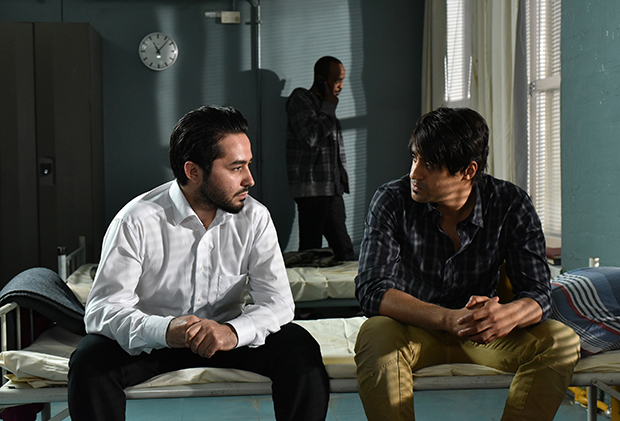In the Finnish film The Other Side of Hope one of the main characters opens a restaurant. In an attempt to enliven the flagging business he switches from his standard offering of boiled potatoes and tinned sardines to sushi but the experiment is not a success. At one point his chef, having run out of raw fish, serves the unlucky customers salted herring on a scoop of rice smothered in wasabi.
The Other Side of Hope is a similar exercise in acquired taste but ultimately more appetising than the Scandi-sushi fusion. It is the latest film from Aki Kaurismäki, and fans will be glad to know he’s doing what he does best: lugubrious, parched-dry deadpan, pitched with deceptive economy and masterly minimalism.
It’s a world of fatalistic melancholics who barely speak except to trade sideways wisecracks or absurdist aperçus. This, for example, is the conversation between two men before a punch-up, delivered with impeccably droll restraint: “Do you want a fight?” “But I’m bigger.” “So what?”
Those fisticuffs (which, typically for the glass-half-empty-inclined Kaurismäki, leaves both combatants bloodied) takes place between our two main characters. Wikström (Sakari Kuosmanen) is a portly middle-aged man of few words and even fewer smiles (the one time the suggestion of happiness alights on his poker-face is, funnily enough, during a game of poker when he scores an improbable straight flush). With his winnings Wikström buys a restaurant, inherits three staff (who have an even more dour outlook on life than him) and thinks up schemes to draw in more customers (hence the foray into sushi).

Wikström’s sparring partner is Khaled (Sherwan Haji), a Syrian refugee who takes to rough sleeping outside the restaurant when his application for asylum is rejected. Asked to leave by Wikström, the otherwise mild-mannered Khaled snaps and they exchange blows. But, a bloody nose later, Wikström decides to offer Khaled work, a place to stay and to shelter him from the authorities.










